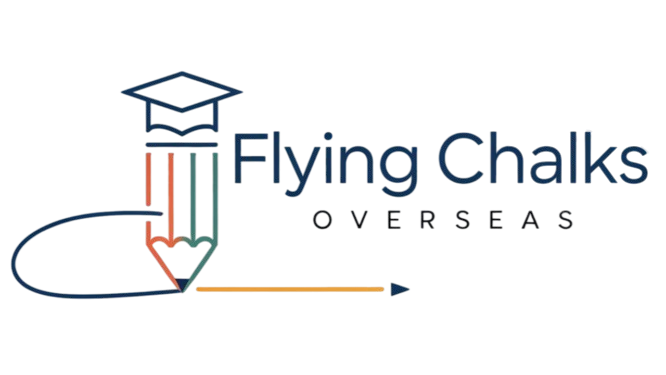The University of Arizona: Campus, Courses, Admissions 2024-25, Scholarships, Rankings, Placements & Alumni

Overview of the University of Arizona Campus and Facilities The University of Arizona, located in the vibrant city of Tucson, Arizona, is a prestigious public research university that offers a diverse and dynamic campus environment. With its sprawling 380-acre campus, the university boasts state-of-the-art facilities, including modern academic buildings, libraries, research centers, and recreational areas. Students can enjoy a wide range of extracurricular activities, including sports, clubs, and cultural events, all while benefiting from the excellent weather that Tucson offers year-round. Whether you’re looking to study in the heart of a bustling university town or seeking a supportive environment for academic success, the University of Arizona provides a campus that fosters personal and academic growth. University of Arizona Courses and Fee Structure The University of Arizona offers a wide variety of programs across multiple disciplines, including engineering, business, arts, sciences, and health sciences. Undergraduate and graduate students can choose from more than 100 degree programs that equip them with the knowledge and skills needed to succeed in their chosen careers. Fee Structure for International Students (2024-25): Undergraduate Programs: The tuition fee for international students ranges from $30,000 to $35,000 per year, depending on the program. Graduate Programs: The fees for graduate programs generally range from $25,000 to $40,000 per year. Additional Costs: Expect additional costs for student housing, books, insurance, and personal expenses, typically ranging from $10,000 to $12,000 annually. Financial Aid & Scholarships: The University of Arizona offers various financial aid options, including scholarships, grants, and work-study opportunities, specifically for international students. Scholarships are available based on academic merit, financial need, and program of study. Undergraduate Programs at the University of Arizona (2024-25) 1. College of Agriculture and Life Sciences Bachelor of Science in Agricultural Business Management Bachelor of Science in Environmental Science Bachelor of Science in Animal Sciences Fee: Approximately $31,000 to $34,000 per year 2. College of Engineering Bachelor of Science in Aerospace Engineering Bachelor of Science in Electrical and Computer Engineering Bachelor of Science in Civil Engineering Fee: Approximately $33,000 to $36,000 per year 3. College of Business and Public Administration Bachelor of Science in Business Administration Bachelor of Science in Finance Bachelor of Science in Marketing Fee: Approximately $32,000 to $35,000 per year 4. College of Education Bachelor of Arts in Education Bachelor of Science in Special Education Fee: Approximately $30,000 to $33,000 per year 5. College of Science Bachelor of Science in Biology Bachelor of Science in Chemistry Bachelor of Science in Physics Fee: Approximately $30,000 to $32,000 per year 6. College of Humanities Bachelor of Arts in English Bachelor of Arts in Philosophy Bachelor of Arts in Psychology Fee: Approximately $29,000 to $32,000 per year 7. College of Social & Behavioral Sciences Bachelor of Arts in Sociology Bachelor of Arts in Political Science Bachelor of Arts in Anthropology Fee: Approximately $29,000 to $31,000 per year 8. College of Fine Arts Bachelor of Fine Arts in Art Bachelor of Music in Performance Bachelor of Arts in Theatre Arts Fee: Approximately $31,000 to $34,000 per year 9. College of Nursing Bachelor of Science in Nursing Fee: Approximately $33,000 to $36,000 per year Postgraduate Programs at the University of Arizona (2024-25) 1. College of Engineering Master of Science in Aerospace Engineering Master of Science in Computer Science Master of Science in Electrical and Computer Engineering Fee: Approximately $25,000 to $40,000 per year 2. College of Business and Public Administration Master of Business Administration (MBA) Master of Science in Finance Master of Science in Marketing Fee: Approximately $35,000 to $45,000 per year 3. College of Education Master of Education in Special Education Master of Arts in Educational Leadership Fee: Approximately $25,000 to $35,000 per year 4. College of Science Master of Science in Biology Master of Science in Chemistry Master of Science in Environmental Science Fee: Approximately $25,000 to $30,000 per year 5. College of Humanities Master of Arts in Philosophy Master of Arts in English Master of Fine Arts in Creative Writing Fee: Approximately $25,000 to $32,000 per year 6. College of Law Juris Doctor (JD) Fee: Approximately $40,000 to $45,000 per year 7. College of Health Professions Master of Public Health (MPH) Master of Science in Nursing Fee: Approximately $35,000 to $40,000 per year 8. College of Social & Behavioral Sciences Master of Arts in Sociology Master of Arts in Political Science Master of Social Work (MSW) Fee: Approximately $25,000 to $30,000 per year 9. College of Medicine Doctor of Medicine (MD) Fee: Approximately $55,000 to $60,000 per year 10. College of Fine Arts Master of Fine Arts in Art Master of Music in Performance Fee: Approximately $30,000 to $35,000 per year University of Arizona Rankings for 2024 The University of Arizona is ranked among the top universities in the United States, known for its high-quality education, research initiatives, and global recognition. Some notable rankings include: QS World University Rankings (2024): Top 200 in the world. U.S. News & World Report (2024): Ranked in the top 100 public universities. Times Higher Education: Strong performance in subject areas like Engineering, Business, and Health Sciences. This prestigious ranking underscores the institution’s commitment to providing a world-class education while maintaining a global academic presence. University of Arizona Admission Requirements for 2024-25 Applying to the University of Arizona for the 2024-25 academic year requires fulfilling specific academic and documentation criteria. Below are the general admission requirements for undergraduate and graduate international students: Undergraduate Admissions: Application Deadline: The regular application deadline is May 1st, but early application is recommended. Documents Required: Completed online application form. High school transcripts (with English translation if necessary). Proof of English proficiency (TOEFL, IELTS, or Duolingo). SAT or ACT scores (optional but recommended). Letters of recommendation. Personal statement/essay. Graduate Admissions: Application Deadline: Varies by program, typically by March 1st. Documents Required: Completed online application. Bachelor’s degree transcripts. Statement of Purpose. Letters of recommendation. English language proficiency scores. GRE/GMAT scores (depending on the program). Be sure to check individual program requirements for any additional documentation. Scholarships for International Students at the University of Arizona The
Imperial College London: Rankings, Courses, Admissions, Scholarships, and More

Overview of Imperial College London Imperial College London is one of the world’s leading universities, internationally recognized for its research and innovation in science, engineering, business, and medicine. Located in the heart of London, it is renowned for its cutting-edge research and offers an exceptional educational experience that provides students with the tools needed to make an impact on the world stage. With state-of-the-art facilities, expert faculty, and strong links to industry, Imperial College London is the ideal destination for aspiring professionals. Rankings Imperial College London continues to be a top choice for students worldwide, consistently ranked among the best universities. QS World University Rankings 2024: #6 globally Times Higher Education (THE) Rankings 2024: #10 globally Best UK Universities for STEM (2024): #2 Global Research Impact Ranking: #1 in Engineering, Technology, and Medicine The university’s consistent ranking at the top of global university charts reflects its leadership in academia, groundbreaking research, and high-impact innovations. All the Courses at Imperial College London Imperial College offers a vast array of undergraduate, postgraduate, and doctoral programs, spanning various fields of study. Undergraduate Programs Imperial College London offers undergraduate programs that prepare students for a wide range of exciting careers in fields like engineering, science, business, and medicine. Here are some of the most popular courses: Engineering and Technology Aerospace Engineering Civil and Environmental Engineering Electrical and Electronic Engineering Mechanical Engineering Materials Science and Engineering Bioengineering Biomedical Engineering Science Physics Mathematics Chemistry Life Sciences Biology Environmental Science Business and Economics Business Management Economics Finance and Accounting Entrepreneurship Health and Medicine Medicine (MBBS) Pharmacology Nursing Biomedical Science Postgraduate Programs Imperial College London offers several postgraduate courses designed for students who wish to specialize in their fields or further their careers with advanced research. Key programs include: Master’s Programs MSc Data Science and Machine Learning MSc Artificial Intelligence MSc Business Analytics MSc Bioinformatics MSc Environmental Technology MSc Chemical Engineering MSc Computational Finance MSc Robotics MBA Programs MBA (Imperial College Business School) Executive MBA (EMBA) Global Online MBA PhD Programs Imperial offers numerous PhD programs across various faculties, including: PhD in Engineering PhD in Computer Science PhD in Medicine PhD in Natural Sciences Students wishing to pursue research will find a range of exciting opportunities within these departments, working alongside world-class researchers and professionals. Admissions Process Undergraduate Admissions Imperial College has a highly competitive admissions process. Here’s what you need to know: Application Portal: UCAS (for UK and international students). Entry Requirements: A-Levels: AAA in Mathematics, Physics, and another subject (varies by course). International Baccalaureate: A minimum of 39 points, including 7 in Mathematics and Physics. English Language Proficiency: IELTS score of 7.0 (or equivalent) for international students. Required Documents: Personal statement References For some courses, mathematics and science subject tests or interviews are required. Postgraduate Admissions Postgraduate applications can be done through the Imperial College website. For most programs, the requirements include: Eligibility: A first-class or 2:1 degree from a recognized institution. Strong academic background in relevant fields (varies by program). Some programs (e.g., MBA, Executive MBA) may require professional experience and standardized tests such as GMAT or GRE. Required Documents: Statement of Purpose Transcripts Letters of Recommendation Test scores (if applicable) Cost of Study Undergraduate Fees Tuition: £31,000 to £37,000 per year, depending on the course. Living costs (accommodation, food, transportation): £1,500–£2,500 per month, depending on lifestyle and housing choice. Postgraduate Fees Master’s Programs: £25,000–£42,000 per year. MBA Program: £58,000–£60,000. Living costs for students in London: £1,200–£2,000 per month. Financial Aid and Scholarships Imperial College offers a variety of scholarships to help students fund their studies, including merit-based awards, financial aid, and external scholarships. Acceptance Rate Imperial College London has an acceptance rate of approximately 15%, making it one of the most selective universities in the world. To be considered for admission, applicants need to showcase outstanding academic credentials, relevant extracurricular activities, and strong personal statements or recommendations. Scholarships at Imperial College London Imperial College London provides numerous scholarship opportunities for both undergraduate and postgraduate students. Some of the top scholarships include: Undergraduate Scholarships President’s Undergraduate Scholarship: £5,000–£10,000/year GREAT Scholarships: £10,000 for select courses for international students. Imperial College London Bursary: £1,000–£3,000/year (based on household income). Postgraduate Scholarships Chevening Scholarships: Fully funded for international students. Commonwealth Scholarships: Fully funded tuition fees and living costs for Commonwealth students. Imperial College Business School Scholarships: Available for MBA applicants. Students should visit Imperial’s scholarship page early and carefully review eligibility requirements. Placements and Career Prospects Imperial College graduates are highly sought after by top companies worldwide. With a 92% employability rate within six months of graduation, students have excellent prospects for career success. Some of the most popular employers of Imperial College graduates include: Google Microsoft Facebook Goldman Sachs McKinsey & Company Bain & Company Students also have access to comprehensive career services, including job fairs, internship opportunities, networking events, and career counseling. Accommodation at Imperial College London Imperial offers a range of accommodation options to suit students’ preferences and budgets. On-Campus Accommodation: Beit Hall: £170–£220/week (standard shared rooms) Southside Halls: £200–£300/week (self-catered options) Graduate Accommodation: £200–£350/week (depending on location and amenities) Off-Campus Accommodation: Shared apartments: £600–£1,200/month Private studios: £1,200+/month London has a wide range of private rental options for students who prefer living off-campus. Imperial College’s accommodation services help students secure housing options in the area. FAQs 1. What is Imperial College London best known for? Imperial College is known for its top-tier education in STEM subjects, and its world-class research and innovative approach in fields like Engineering, Medicine, and Natural Sciences. 2. How do I apply for scholarships at Imperial College? Each program has specific scholarship opportunities. Applicants can find scholarships listed on the program page or the scholarships portal, with separate applications required for many scholarships. 3. What is the student-to-faculty ratio at Imperial College London? Imperial College has a 9:1 student-to-faculty ratio, allowing for an excellent learning environment with personalized attention and mentorship. 4. Are there opportunities for internships during the course? Imperial College offers numerous opportunities for internships, as well as a
Massachusetts Institute of Technology (MIT): Rankings, Courses, Admissions, Cost, Scholarships, and Placements

Introduction Massachusetts Institute of Technology (MIT), located in Cambridge, Massachusetts, is a global leader in education, research, and innovation. Renowned for its cutting-edge programs in science, engineering, and technology, MIT attracts some of the brightest minds worldwide. This guide covers everything you need to know about MIT, including rankings, courses, admissions, tuition costs, scholarships, and career opportunities. MIT Rankings MIT consistently ranks among the top universities globally, earning recognition for its academic excellence and groundbreaking research. QS World University Rankings 2024: #1 Times Higher Education (THE) Rankings 2024: #5 U.S. News & World Report (Global Rankings): #2 Subject Rankings: Computer Science: #1 Engineering: #1 Economics: #2 Business Analytics: #1 Physics: #2 Programs and Courses at MIT MIT offers a wide range of undergraduate, graduate, and professional programs across five schools. Below is a detailed list of available disciplines: Undergraduate Programs Undergraduate programs at MIT are designed to foster innovation and practical problem-solving skills. Popular Majors: Computer Science and Engineering Mechanical Engineering Aerospace Engineering Electrical Engineering and Computer Science (EECS) Mathematics Physics Economics Architecture Biological Engineering Graduate and Professional Programs at MIT 1. School of Engineering MIT’s School of Engineering is renowned for its cutting-edge research and innovation in engineering and technology. Master’s Programs: Master of Science (SM) in Aeronautics and Astronautics Master of Science (SM) in Biological Engineering Master of Science (SM) in Chemical Engineering Master of Science (SM) in Civil and Environmental Engineering Master of Engineering (MEng) in Computer Science and Molecular Biology Master of Engineering (MEng) in Electrical Engineering and Computer Science (EECS) Master of Science (SM) in Materials Science and Engineering Master of Science (SM) in Mechanical Engineering Master of Science (SM) in Nuclear Science and Engineering Doctoral Programs: Ph.D. in Aeronautics and Astronautics Ph.D. in Chemical Engineering Practice (Ph.D.CEP) Ph.D. in Electrical Engineering and Computer Science Ph.D. in Biological Engineering Ph.D. in Civil and Environmental Engineering Ph.D. in Computational Science and Engineering (CSE) Ph.D. in Mechanical Engineering Ph.D. in Nuclear Science and Engineering 2. School of Science The School of Science focuses on advancing knowledge in fundamental sciences through rigorous research and innovation. Master’s Programs: Master of Science in Physics Master of Science in Chemistry Master of Science in Mathematics Doctoral Programs: Ph.D. in Biology Ph.D. in Brain and Cognitive Sciences Ph.D. in Earth, Atmospheric, and Planetary Sciences Ph.D. in Physics Ph.D. in Mathematics Ph.D. in Computational and Systems Biology 3. Sloan School of Management MIT Sloan is globally recognized for its exceptional business and management education, focusing on leadership and innovation. Master’s Programs: Master of Business Administration (MBA) Master of Finance (MFin) Master of Business Analytics Executive MBA (EMBA) Doctoral Programs: Ph.D. in Management Science (Accounting, Finance, Marketing, Operations Research, etc.) Ph.D. in System Dynamics Ph.D. in Strategy and Entrepreneurship Specialized Programs: Sloan Fellows MBA Program Leaders for Global Operations (LGO) – Dual MBA/MS program 4. School of Architecture and Planning The School of Architecture and Planning emphasizes sustainable design, urban studies, and technological integration. Master’s Programs: Master of Architecture (M.Arch) Master of Science in Building Technology Master in City Planning (MCP) Master of Science in Urban Studies and Planning Doctoral Programs: Ph.D. in Architecture Ph.D. in Urban Studies and Planning Ph.D. in History, Theory, and Criticism of Architecture and Art 5. School of Humanities, Arts, and Social Sciences This school offers programs that combine analytical research and creativity in arts and humanities. Master’s Programs: Master of Science in Comparative Media Studies Master of Science in Political Science Doctoral Programs: Ph.D. in Economics Ph.D. in Linguistics Ph.D. in Philosophy Ph.D. in Political Science Ph.D. in History 6. Interdisciplinary Graduate Programs MIT’s interdisciplinary programs span multiple departments to foster collaboration and innovation. Popular Programs: Ph.D. in Computational Science and Engineering (CSE) Master’s and Ph.D. in Technology and Policy (TPP) Integrated Design and Management (IDM) Master’s Program Ph.D. in Microbiology Ph.D. in Social and Engineering Systems (SES) 7. Professional and Executive Education Programs MIT offers professional programs designed for working professionals and industry leaders. Certificate Programs: Professional Certificate in Machine Learning and Artificial Intelligence Professional Certificate in Leadership and Innovation Certificate in Sustainable Energy Executive Education Programs: Executive Program in Business Analytics Advanced Certificate for Executives in Management, Innovation, and Technology (ACE) Executive Education in System Design and Management Specialized and Online Programs MIT also offers specialized online programs and certifications for working professionals. Popular Online Courses: Data Science and Machine Learning Innovation and Entrepreneurship Sustainable Energy Admissions Process Admission to MIT is highly competitive, requiring an outstanding academic and extracurricular profile. Undergraduate Requirements: High school GPA: 3.5+ Standardized Test Scores: SAT (1500+) or ACT (34+) Strong Letters of Recommendation Graduate Requirements: Bachelor’s degree in a relevant field GRE/GMAT scores (varies by program) Research experience for Ph.D. programs English Language Proficiency: TOEFL: Minimum 100 IELTS: Minimum 7.5 Application Deadlines: Undergraduate Regular Decision: January 5 Graduate Deadlines: Program-specific (typically December–February) Cost of Studying at MIT The cost of attendance at MIT varies based on the program and living arrangements. Expense Undergraduate (per year) Graduate (per year) Tuition Fees $57,000 $55,000 – $70,000 Housing & Meals $17,800 $15,000 – $20,000 Books & Supplies $1,200 $1,200 Miscellaneous $3,000 $3,000 Scholarships and Financial Aid MIT offers need-based financial aid to ensure accessibility for students from diverse backgrounds. MIT Scholarships: Based on financial need; covers up to 100% of tuition for eligible families. Graduate Fellowships: Funding for research-based programs. External Scholarships: Fulbright Scholarships Rhodes Scholarships Placements and Career Opportunities Graduates from MIT are highly sought after by top organizations and industries globally. Placement Statistics: Average Salary for MIT Graduates: $110,000/year Employment Rate: 95% within six months of graduation Top Hiring Sectors: Technology: Apple, Google, Tesla Consulting: Bain & Company, McKinsey & Company Aerospace: NASA, Boeing FAQs 1. What is MIT’s acceptance rate? MIT has an acceptance rate of around 4.1%, making it one of the most selective universities in the world. 2. Are there research opportunities for undergraduate students at MIT? Yes, through the Undergraduate Research Opportunities Program (UROP), students can work alongside faculty on groundbreaking research. 3. Can international students
Harvard University: Rankings, Courses, Admissions, Cost, Scholarships, and Placements

Introduction Harvard University is synonymous with academic brilliance and global prestige. Nestled in Cambridge, Massachusetts, it’s a beacon for students worldwide aspiring to study in a world-class institution. In this guide, we delve into Harvard’s rankings, an extensive list of courses and programs, the admissions process, tuition fees, scholarships, and post-graduation career opportunities. Harvard University Rankings Harvard consistently maintains its position among the best universities globally. QS World University Rankings 2024: #3 Times Higher Education (THE) Rankings 2024: #2 U.S. News & World Report (Global Rankings): #1 Subject Rankings: Business & Management: #1 Law: #1 Medicine: #2 Arts & Humanities: #1 Natural Sciences: #2 Comprehensive List of Programs and Courses at Harvard University Harvard University offers an unparalleled range of programs across 12 degree-granting schools. Below is a detailed breakdown: Undergraduate Programs Offered through Harvard College, these programs cover diverse fields, allowing students to major in over 50 disciplines. Popular Undergraduate Majors: Economics Computer Science Political Science and Government Psychology Applied Mathematics Environmental Science and Public Policy Sociology History Graduate and Professional Programs Graduate programs are offered through Harvard’s 12 graduate schools, each known for its excellence in a particular field. 1. Harvard Business School (HBS) Master of Business Administration (MBA) Executive Education Programs Doctor of Business Administration (DBA) 2. Harvard Law School (HLS) Juris Doctor (JD) Master of Laws (LLM) Doctor of Juridical Science (SJD) 3. Harvard Medical School (HMS) Doctor of Medicine (MD) Master in Medical Sciences (MMSc) Ph.D. in Biological and Biomedical Sciences 4. Harvard Kennedy School (HKS) Master in Public Policy (MPP) Master in Public Administration (MPA) Mid-Career Master in Public Administration 5. Graduate School of Arts and Sciences (GSAS) Ph.D. in Physics Master of Science in Data Science Ph.D. in English 6. Harvard School of Engineering and Applied Sciences (SEAS) Master in Computational Science and Engineering Master in Design Engineering (joint with GSD) Ph.D. in Applied Physics 7. Harvard Graduate School of Design (GSD) Master in Architecture (M.Arch) Master in Urban Planning (MUP) Doctor of Design (DDes) 8. Harvard Graduate School of Education (HGSE) Master of Education (Ed.M.) Doctor of Education Leadership (Ed.L.D.) Ph.D. in Education 9. Harvard School of Public Health (HSPH) Master of Public Health (MPH) Master of Science in Epidemiology Ph.D. in Population Health Sciences 10. Harvard Divinity School (HDS) Master of Theological Studies (MTS) Master of Divinity (MDiv) Doctor of Theology (Th.D.) 11. Harvard Extension School Online/Hybrid Bachelor’s Degrees Master’s in Sustainability Graduate Certificates in Data Science and AI 12. Harvard School of Dental Medicine Doctor of Dental Medicine (DMD) Advanced Graduate Education Programs Certificate and Short-Term Programs For working professionals or students seeking specialization, Harvard offers numerous short-term programs. Popular Certificate Programs: Leadership in Artificial Intelligence Digital Marketing Strategy Healthcare Policy and Management Innovation and Entrepreneurship Admissions Process Admissions to Harvard are competitive, and candidates must present an exceptional profile. Key Requirements: High academic performance (GPA of 3.7+ recommended) Standardized Test Scores: SAT/ACT for undergraduates; GRE/GMAT for graduate programs Essays and Statements of Purpose tailored to each program English Language Proficiency Tests: TOEFL: Minimum 100 IELTS: Minimum 7.5 Application Deadlines: Undergraduate Early Action: November 1 Graduate Deadlines: Vary by program (typically December–January) Cost of Studying at Harvard University Harvard’s tuition fees vary depending on the program. Expense Undergraduate (per year) Graduate (per year) Tuition Fees $54,000 $50,000 – $72,000 Housing & Meals $18,000 $15,000 – $20,000 Books & Supplies $1,200 $1,000 Miscellaneous $3,000 $3,000 Scholarships and Financial Aid Harvard provides significant financial aid to ensure accessibility for students worldwide. Need-Based Aid: Covers up to 100% of tuition for families earning less than $75,000 per year. Merit-Based Scholarships: For exceptional achievements in academics or extracurriculars. External Scholarships: Chevening Scholarships Rhodes Scholarship Placements and Career Opportunities Harvard graduates are highly sought after in various industries due to their strong academic foundation and practical exposure. Placement Statistics: Average Salary Post-MBA: $120,000/year Employment Rate: 94% within six months of graduation Top Hiring Sectors: Technology: Google, Microsoft Consulting: McKinsey & Company, Boston Consulting Group Finance: Goldman Sachs, Morgan Stanley FAQs 1. What is Harvard’s acceptance rate? Harvard’s acceptance rate is around 4%, making it one of the most selective universities globally. 2. Can international students work part-time at Harvard? Yes, international students can work on campus for up to 20 hours per week during the semester. 3. Does Harvard offer online courses? Yes, through Harvard Extension School and edX, students can enroll in online certificate and degree programs. 4. Are scholarships available for international students? Yes, Harvard offers need-based and merit-based scholarships to international students. Conclusion Harvard University is more than just a dream—it’s a platform for turning aspirations into achievements. With world-class programs, cutting-edge research, and global recognition, Harvard remains a top choice for students worldwide. Start your preparation today, and who knows? You could be the next Harvard success story! Ready to Begin Your Harvard Journey? Unlock the doors to one of the world’s most prestigious universities with our expert guidance. Whether it’s choosing the right program, crafting a standout application, or securing scholarships, we’ve got you covered. Call us at +91 8151861999 Email us at contact@flyingchalksoverseas.com Your Harvard dream is just a step away—let’s make it a reality!
